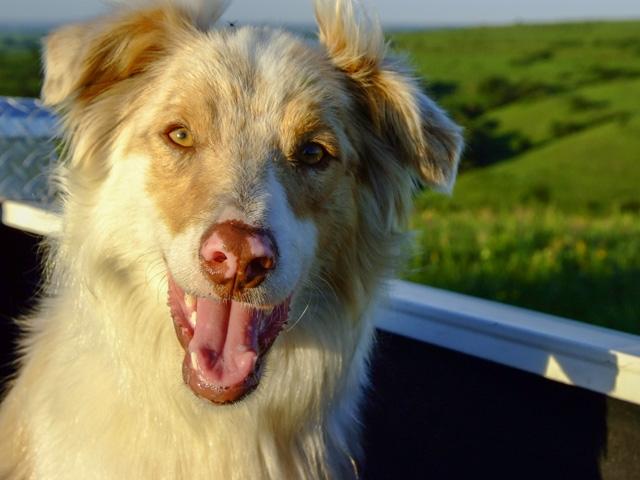Ask the Vet
Skillet-Licking Dogs
READER QUESTION:
My husband lets the dogs eat out of the skillet after it cools. I don't believe humans and animals should share the same dishes. He says it's safe. I want to know who is right.
DR. MCMILLAN'S ANSWER:
Well, any time I'm called upon to settle a family argument, I know I'm in a no-win situation! The truth is that allowing our pets to help us clean up dishes and cooking utensils is a very common practice. I found one study that reported that 1 in 6 households allows their dogs to lick their plates. I think some of the other five households may not be telling the truth.
P[L1] D[0x0] M[300x250] OOP[F] ADUNIT[] T[]
But it's true there is risk in this practice. Pets' mouths can harbor bacteria such as salmonella, which are not always destroyed by dishwashing. In addition, many of our foods can be dangerous to pets, including chocolate, onions, garlic, chives and grapes.
For those who are going to continue this practice, my comment is that you need to be sure to practice good sanitation in the kitchen. Sinks, countertops, cutting boards and other kitchen utensils can be contaminated with bacteria or parasites. That risk is probably greater from the preparation of fruits, vegetables, and meats than from our pets, however.
Beyond letting your pets lick your own dishes and cooking utensils, it's important that their own bowls be kept clean. Pets' food and water bowls should be stainless steel or ceramic, without chips. Plastic bowls scratch easily and are more difficult to sanitize. Be sure that your pets' bowls are regularly cleaned. Ideally, this means you run them through the dishwater separately.
**
Editor's Note:
Please contact your veterinarian with questions pertaining to the health of your herd or other animals. Every operation is unique, and the information in this column does not pertain to all situations. This is not intended as medical advice but is purely for informational purposes.
Write Dr. Ken McMillan at Ask the Vet, 2204 Lakeshore Dr., Suite 415, Birmingham, AL 35209, or email vet@progressivefarmer.com.
(c) Copyright 2022 DTN, LLC. All rights reserved.






